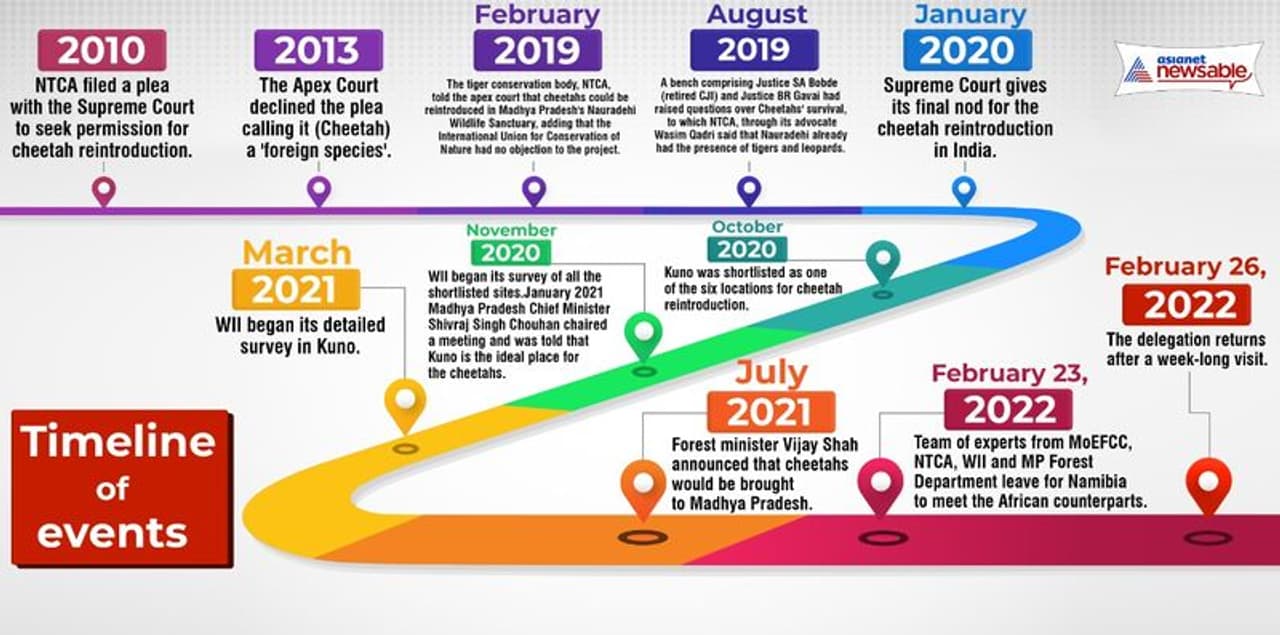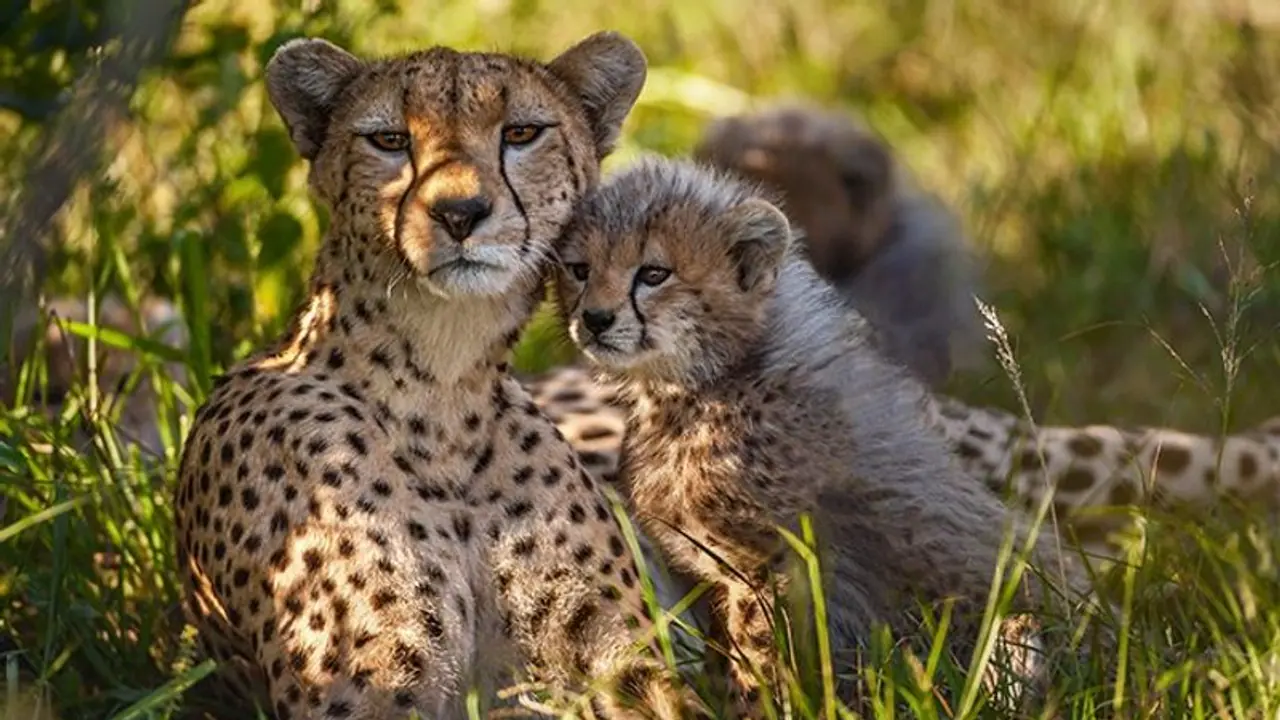Team of officials who had gone to Africa to meet their South African and Namibian counterparts, returned on Saturday. The timeline for the arrival of cheetahs can be ascertained only after the MoU is signed between the governments.
Image: Getty Images

India will have to wait for months to welcome cheetahs in Madhya Pradesh. A five-member team of experts including JS Chauhan, Principal Chief Conservator of Forest (Wildlife) and Chief Wildlife Warden, returned from Namibia, after spending a week there with their African counterparts. It was for the first time that the government officials from the countries met in regard to India’s ambitious Cheetah Reintroduction project. The meeting has been termed as ‘positive’ by the officials.
However, there are months for cheetahs to arrive in India, even though the process has now officially begun. According to the PCCF, a Memorandum of Understanding (MoU) regarding the transfer of the feline has been sent to the African counterparts, and a formal signing is awaited. It is probably the first-ever inter-continent translocation project of a predator that is being taken place.
“Cheetahs will come to India but the timeline for it is very difficult to say. It is now a government-to-government project, and dates have to be mutually agreed upon. They have certain things to be negotiated whereas India has nothing to be negotiated,” said Chauhan, while speaking to this reporter.
ALSO READ: 7 reasons why 'Collarwali' was one of her kind
“An MoU was formulated and sent to the Government of India (GoI). The GoI has responded to it; now once the MoU is signed, it will pave the road of the timeline. Cheetahs have to come but how much time will it take, depends upon the donor; India is very much prepared to home them,” he further added.

The expert team which went to Africa for the meeting comprised of Rakesh Kumar Jagenia (deputy inspector-general of Ministry of Environment, Forest and Climate Change), Amit Mallick (inspector-general of National Tiger Conservation Authority), YV Jhala (dean of Wildlife Institute of India), JS Chauhan (PCCF and CWW MP Forest) and Ashok Barnwal (principal secretary MP forest department).
Meanwhile, another team is being readied to be sent to Africa soon. This team will of forest officials from Kuno National Park, where the cheetahs would be brought, including a veterinarian and a researcher. This team will be going to learn and understand about cheetahs, their habitat and more.
ALSO READ: Danger lurks beyond Tiger territory: 40% big cats on the prowl in unprotected areas
Explaining this, he further said, “Cheetah is such a delicate animal that to establish a population here we need the supervision of the experts. Some field officers who will be managing the cheetah upon its arrival will be sent to Africa for at least a week or two’s training so that they can stay in the field and understand their job. We know how to manage a leopard and a tiger but since we do not have cheetahs in India anymore, we do not have the experience of managing it. Thus, we need to learn afresh.”
Chauhan also said that MP will also be expecting a team of experts to arrive here. The African experts’ purpose of visiting would be to train and interact with the forest officers in Kuno, explaining to them how different it is to manage a cheetah than the other big cats, and at the same time “what extra needs to be done for cheetah’s conservation”.
Furthermore, when asked if the reintroduction project would mean India sending some animals to the African countries in exchange, Chauhan denied it, calling it only a project based on a ‘donation’ perspective.
ALSO READ: MP's decision to send rescued tigers and leopards to Reliance-owned zoo in Jamnagar draws flak
“No such demands have been made from neither Namibia nor South Africa from where the cheetahs will be brought. It is purely based on donation, just to expand the cheetah’s territory in its historical distribution.”
He also ruled out the possibility of cheetahs being sent to India to avoid breeding within the same gene pool. “They don’t have gene pool issue in Africa. It may happen in India when we bring in cheetahs from there. Meaning, we will have to infuse fresh cheetahs every year or every alternate year from elsewhere so that the gene-pool variety maintains, avoiding chances of inbreeding. Africans are very good at it. They maintain a historical perspective of every animal which includes details such as from where it was brought, which gene pool does it belong to, etc. They will make sure that cheetahs are being sent to India from different gene pools and different geographical locations, which will be good for the population to breed here,” he explained.
The big cat, which was declared extinct in India in 1952, will be reintroduced in phases. In the first year, a pair of 10 cheetahs can be reintroduced, and then more will be brought in over a period of five years.
Cheetahs will be brought to MP’s Kuno National Park in Sheopur district. It is the same protected area where the Asiatic Lions from Gujarat’s Gir were to be brought. However, the Gujarat government has been delaying it for over a decade, despite the Supreme Court’s order to translocate the lions.

